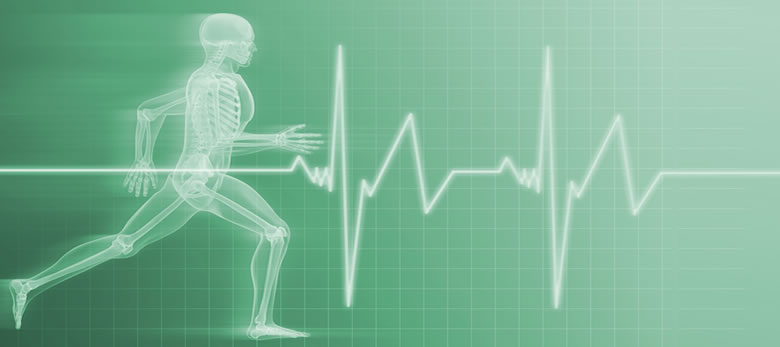Experimental Biomedical Research
Abstract
The Master's programme in Experimental Biomedical Research provides opportunities for a broad learning experience in the area of biomedicine. It emphasizes research training and acquisition of practical skills that will enhance students' capacity to continue learning in their future employment and/or develop a research career in their chosen option. Three options are available: «Neuroscience», «Infection, Inflammation and Cancer», «Cardiovascular and Metabolic Health».
Profile of the study programme
The Master's programme in Experimental Biomedical Research provides opportunities for a broad learning experience in the area of biomedicine. It emphasizes research training and acquisition of practical skills that will enhance students' capacity to continue learning in their future employment and/or develop a research career in their chosen option. Three options are available:
- Neuroscience: The focus of this option lies mainly on understanding the functioning of neural circuits and systems in health and disease in both humans as well as relevant animal models including rodents, tree shrews and macaques. State-of-the-art approaches for diagnosing and repairing central nervous system dysfunctions will be presented and critically evaluated. Students will have the opportunity to acquire in-depth expertise in areas including structural and functional brain imaging, multi-channel electrical recordings, deep-brain and trans-cranial magnetic stimulation, pharmacological interventions, quantitative neuroanatomical reconstruction, data analysis and interpretation as well as developing and conducting behavioral assays.
- Infection, Inflammation and Cancer: This option will provide a comprehensive theoretical and practical basis to understand novel paradigms and emerging areas of research in the field of infection, inflammation and cancer. Students will gain insights into topics at the forefront of medical research such as the role of inflammation in cancer and metastasis, the immune response to cancer and the development of antibiotic resistance in infectious diseases. Emphasis will be placed on translational aspects and clinical relevance. Students will acquire practical expertise in state-of-the-art molecular and cellular research techniques, including multicolour flow cytometry, biochemical analyses, a wide range of immunological assays, high-end live imaging techniques, and pharmacological strategies as well the role of various mouse models for cancer and inflammation.
- Cardiovascular and Metabolic Health: The focus of this option lies mainly on understanding mechanisms of cardiovascular and metabolic diseases in an integrative way. Much effort will be made on horizontal integration of research themes among different organs or systems e.g., cardiovascular, renal, metabolic and endocrine systems as well as vertical integration of specific research topic between basic and clinical research teams to foster aspects of transfer of basic laboratory discovery or knowledge into clinical relevance. A wide range of laboratory skills at the molecular, cellular, organ, and whole body levels, including analysis of oxidative stress, inflammation, advanced gene/cell therapy and drug delivery techniques for heart and vascular repair, and metabolic phenotyping, etc. will be provided.
What will I learn?
Students will develop an advanced comprehension of the structure and function of biological systems, together with an understanding of the mechanisms underlying normal function and dysfunction at molecular, cellular and systems levels. They will develop proficiency in scientific thinking, formulation of scientific hypotheses, research project design as well as data analysis and interpretation. They will also acquire and apply research skills necessary for scientific investigations and develop specific knowledge in this field.
Who can apply?
The programme is addressed to students with an undergraduate degree in Life Sciences or a related subject area.
What are we looking for?
When assessing your application we would like to know:
– Why you want to study Experimental Biomedical Research?
– Why you want to study at the University of Fribourg?
– What particularly attracts you to this programme compared to other ones?
– How your personal and professional background meets the demands of this rigorous programme?
– What are your expectations from this programme?
– What your career plans are following the award of your degree?
Together with essential academic requirements, the personal statement is your opportunity to illustrate whether your reasons for applying to this programme match what the programme delivers.
Academic and professional openings
Graduates will find employment opportunities in the biotechnology, pharmaceutical or medical device industry as well as in the health care sector. The Master's degree also provides a solid foundation for doctoral studies, where students can capitalize upon the acquired knowledge and skills. A doctorate and subsequent postdoctoral experience then provide potential access to academic and management positions within Switzerland or abroad.
Studies organisation
Structure of studies
90 ECTS credits, 3 semesters
Curriculum
http://studies.unifr.ch/go/xZPll (French)
http://studies.unifr.ch/go/z3FE1 (German)
Comments
The number of places is limited to the formation capacities of the department of medicine.
Admission
The admission to the Master follows the conditions of admission of the University of Fribourg. Holders of a Bachelor's degree in Life Sciences awarded from a Swiss University can be admitted to the Master's degree course. The same applies to holders of a Bachelor's degree awarded by a foreign university, provided that the Bachelor's degree is recognized and considered equivalent by the University of Fribourg. For details, please, refer to the study plan.



